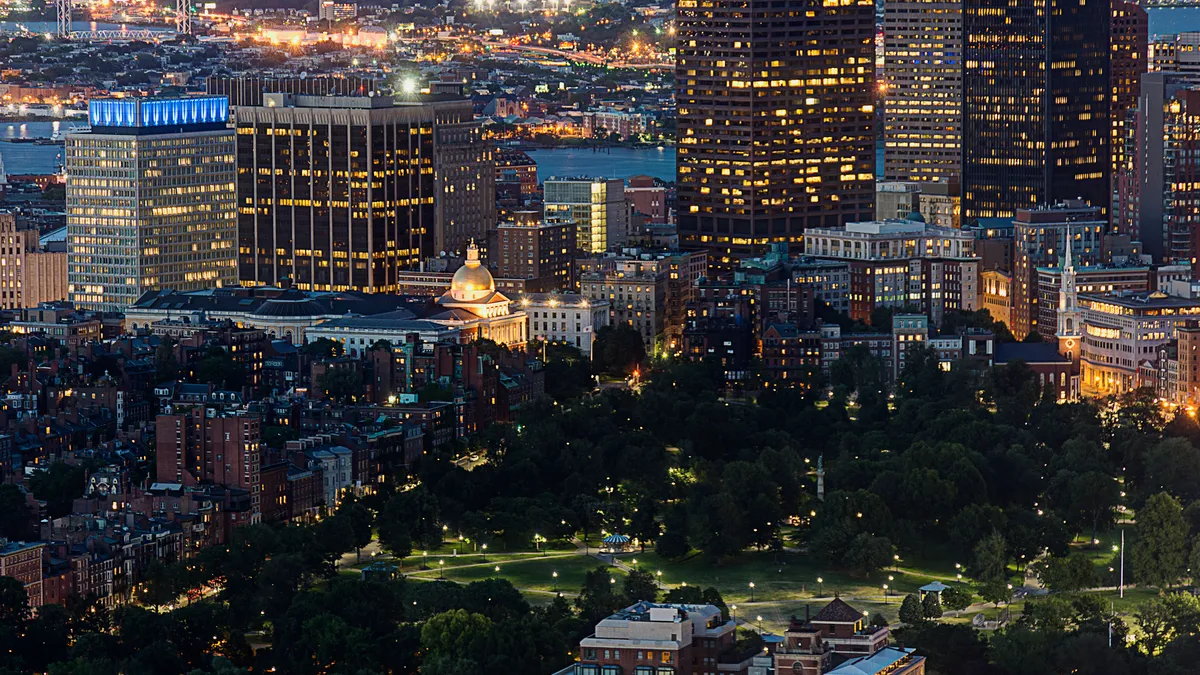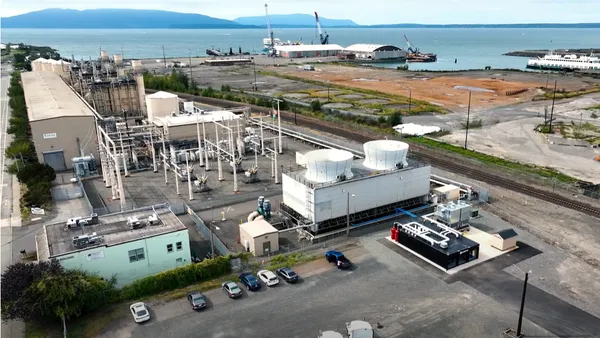Dive Brief:
- Boston Mayor Marty Walsh has updated the city's Climate Action Plan to require that all new city buildings have a carbon-neutral design.
- The plan includes guidelines for city-funded affordable housing to be zero net carbon. It also calls for the development of performance standards to decarbonize large buildings, possibly through changes in the city's zoning codes. Those standards could be put in place within 18 months, according to a report in The Boston Globe.
- Buildings account for roughly 70% of the city's carbon emissions, and municipal buildings account for nearly 75% of emissions from local municipal operations. Decarbonizing large buildings could cut citywide emissions nearly 40% by 2050 compared to business-as-usual projections, according to city estimates.
Dive Insight:
Walsh announced the updated standards at the C40 Mayors Climate Summit in Copenhagen, where he talked up the city's commitment to meet the Paris climate agreement goals. Boston has set a goal to achieve carbon neutrality by 2050, with strategies that touch on renewable energy, transportation, the built environment and adapting infrastructure.
Boston's strategy brings it in line with other cities targeting built infrastructure for climate change reductions. New York City, for example, passed a landmark regulation requiring buildings over 25,000 square feet to cut climate emissions 40% by 2030 and more than 80% by 2050. Others, like San Francisco, are pushing commercial buildings to use renewable energy; San Jose, CA and Berkeley, CA have also moved rules barring natural gas in new buildings.
The strategies Boston will explore include electric heating and appliances; design that allows for natural heating and cooling; and efficient lighting and heating that reduces electricity demand. The climate plan also includes language around equity to ensure that disadvantaged communities do not end up with higher home or energy costs.
Buildings will be a valuable source of emissions to cut, said Cutler Cleveland, associate director of the Institute for Sustainable Energy at Boston University. While Cleveland praised the city's goals as a way to "lead by example," he noted that municipal buildings make up "a small fraction" of the city's overall emissions.
"This shows what the city can do within its own backyard, but it's going to take some strong action to get to all new buildings," Cleveland told Smart Cities Dive. "When they talk about a performance-based standard, the devil will be in the details and if it is implemented fast enough to get to net zero."
In a statement, Jean Carroon, president of the Boston Society of Architects, said members are already designing net zero buildings. "We know the impact that a well-designed building can have, not only for the climate, but also for the health and well-being of the people who work, live, learn and play within them."










